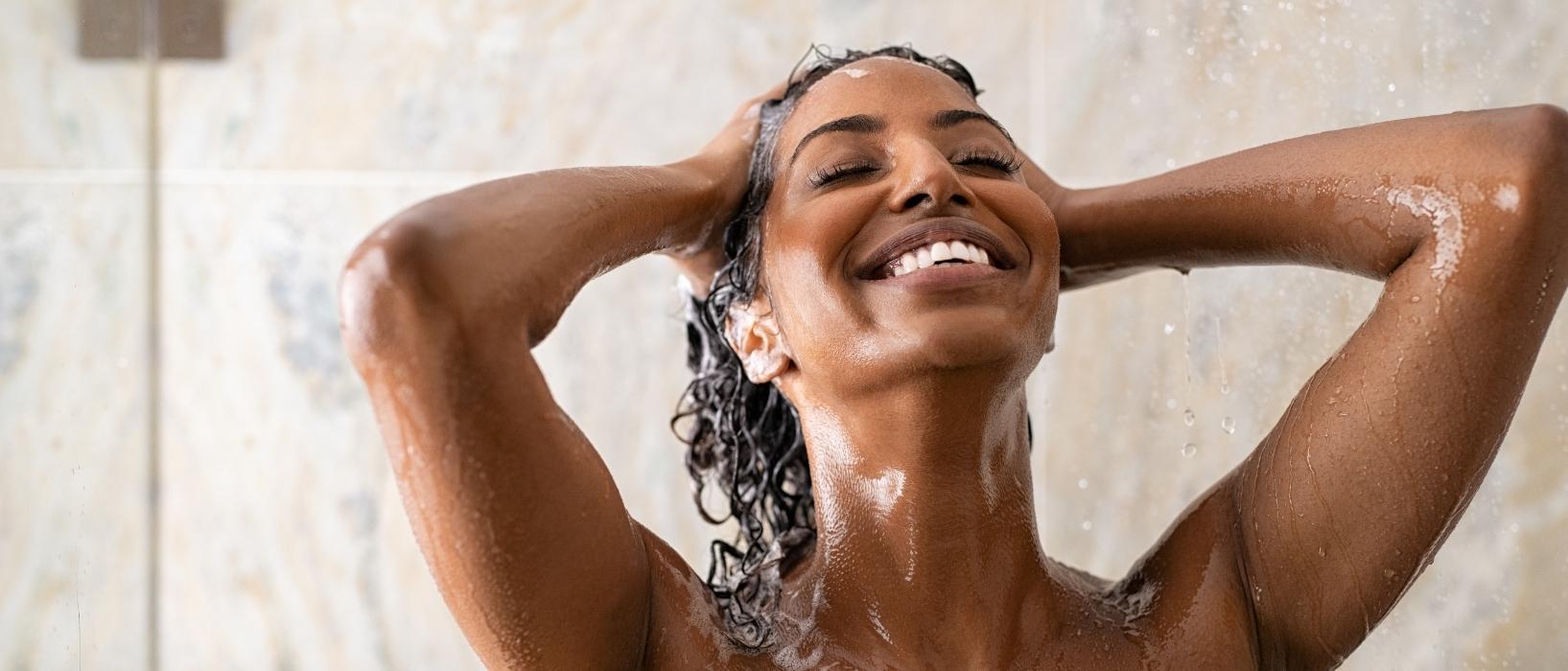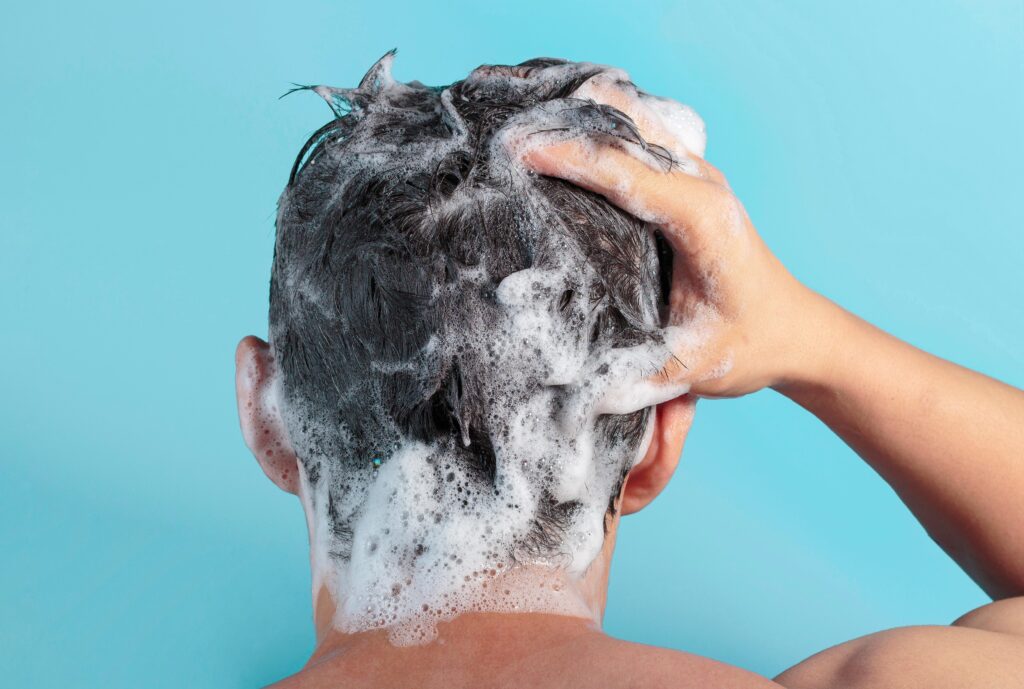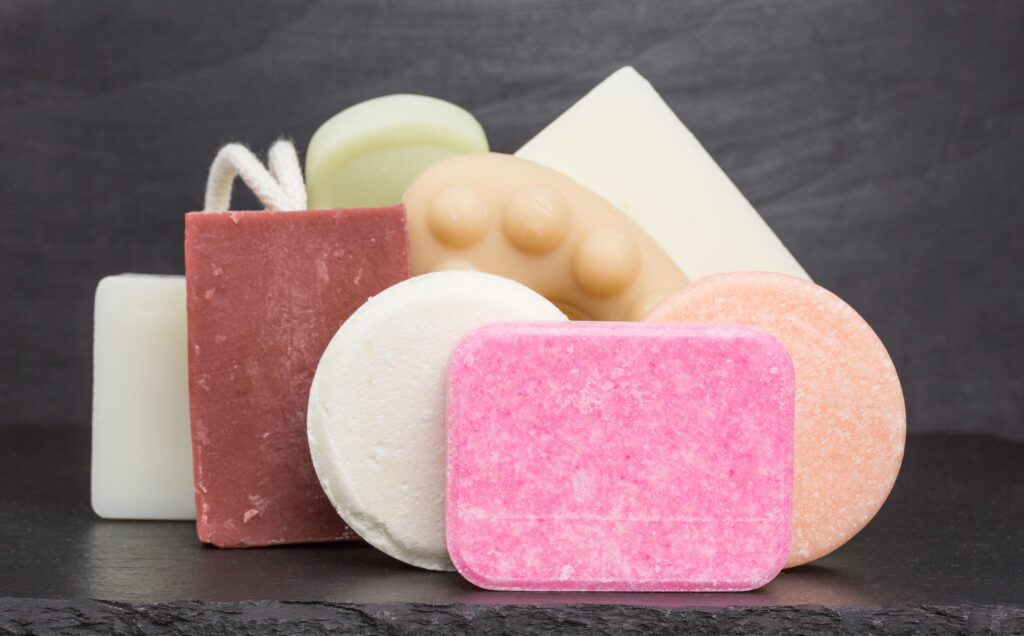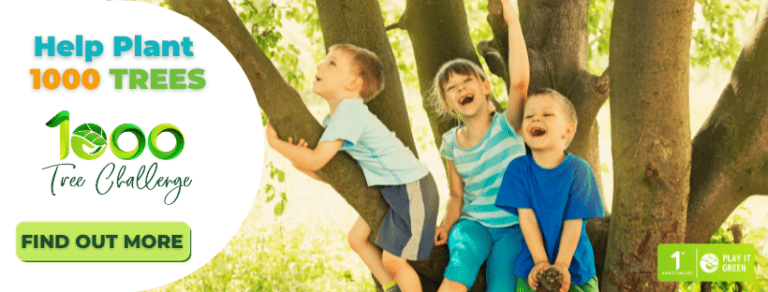
Take one look around the average households bathroom, and you’ll soon see why bathroom and beauty products are often considered some of the most unsustainable.
From the plastic packaging it comes in to the chemicals contained inside, it’s clear why there has been a growing demand for sustainable cosmetics. Still, some products can be hard to replace.
Let’s take shampoo as an example. According to Health Status, many of the common ingredients used in shampoo have been known to cause eye and skin irritation, hair follicle damage, and other health complications.
While this may seem like a minor inconvenience, the real issue is that all of these chemicals get washed down the drain and often end up in our waterways. Many commercial shampoo brands are made with ingredients such as parabens or phthalates, which can wreak havoc on the water supply, causing harm to animals and humans alike.
One example of this is sodium laureth sulfate which can cause mutations in certain animals’ DNA, potentially with fatal side effects.
Plastic microbeads are another huge issue. While these are less likely to be used in shampoo, they can often be found in toothpastes, shower gel, and other cosmetics products. Once they get put down the drain, they have a devastating effect on marine life.

Of course, buying shampoos with more natural ingredients and without harmful additives can reduce a lot of this impact. Nevertheless, even these more ‘eco-friendly’ brands still come in plastic packaging.
Bathroom retailer Tap Warehouse calculated that the average Brit uses over 52,000 bathroom products in their lifetime. That’s a total of 512 kilogrammes, only 50% of which will be recycled, leaving the rest to go to landfill.
Although some of these products may be completely unrecyclable (such as wet wipes), those which are (such as shampoo bottles or toilet roll tubes) often don’t get recycled anyway. This is simply because people don’t tend to keep recycling bins in their bathrooms.
Another investigation by Which? found that many common toiletry products failed to provide clear labelling on recycling, with 60% having no information at all, regardless of whether they were recyclable or not.
In the U.K., all plastic packaging does have a ‘resin identification code’ (a number from one to seven inside a triangle) that indicates which type of plastic it’s made of. From this, you could then work out where to recycle it based on local area advice.
However, this is quite a bit of research on the individual’s part, and many people aren’t even aware these symbols exist in the first place!

Of course, there are sustainable alternatives out there. One of Play it Green’s favourites is Manchester-based company Grüum.
Built on three core principles of Simplicity, Honesty, and Fairness, they create clean skincare, haircare, and shaving solution which are kind to you, your skin, and our planet.
Inspired initially by Scandinavian ideals, they pledged only to create products with real purpose, quality ingredients and made for everyone.
Their range includes the very popular ‘shampoo bar’, helping you ditch the bathroom clutter for good while making a positive impact on our environment (simply lather into your hair like normal shampoo!).
All of their body and shave ranges are vegan-friendly and full of gentle natural ingredients.
On top of that, all of their packaging is ‘slimline’, making it more efficient to transport, and fully recyclable. In fact, they are the first U.K. brand ever to offer a razor recycling scheme. Wherever possible, they also try to make their products in the U.K., keeping transport and emissions to a minimum.
Special Offer: If you want to make the change and cut some bathroom plastic out of your life, Grüum is offering a free shampoo bar so you can ‘try before you buy’. You can also take advantage of a special discount using code PLAY15 at check out.
